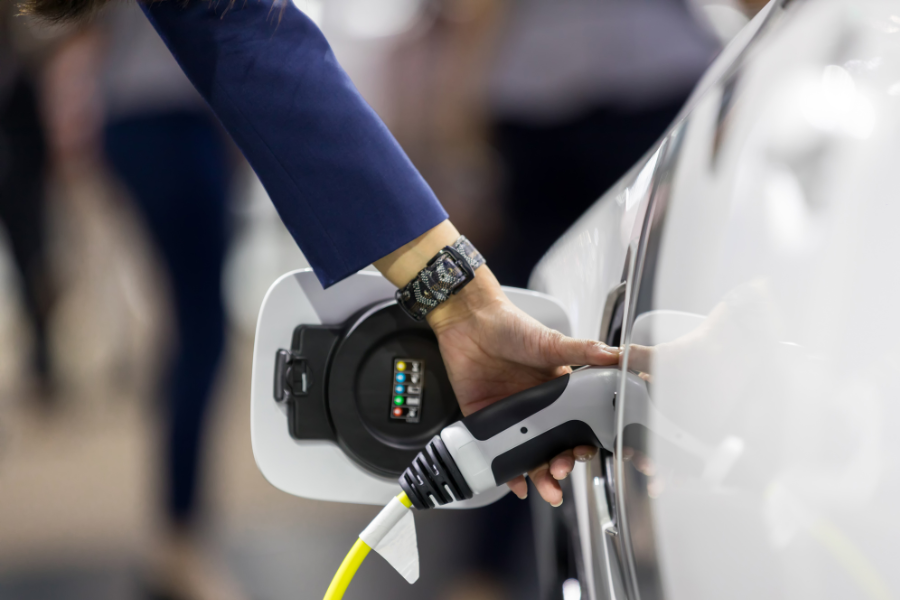Is it time your business upped its green initiatives? In this article, we explore the growing trend for embracing green employee benefits and why businesses are looking to incorporate electric vehicles as part of this move.
There’s no turning back; Electric cars are here to stay. Many of these electric cars have been provided through salary sacrifice, where employers have launched schemes that enable staff to take advantage of some very favourable tax breaks.
So, let’s get the lowdown on electric vehicle salary sacrifice schemes and the tax benefits for employees.
Electric cars salary sacrifice: The lowdown on its uptick in popularity
Salary sacrifice is nothing new. Once favoured as a means to drive Government policy (think the Home Computer Initiative, Cycle to Work schemes, Childcare Vouchers, etc), the number of employee benefits that can be effectively tax-relieved with salary sacrifice has been significantly reduced.
But fear not, given the green agenda, salary sacrifice for electric vehicles is very much alive. Thanks to a very low benefit in kind charge, rolling out an electric car salary sacrifice scheme to employees is becoming increasingly popular and delivers very substantial savings.
Breaking down the employee tax benefits of electric car schemes
Do the maths – if the cost of the car is £500 per month (which would usually include servicing, tyres, insurance, etc) and if this is taken from gross pay under salary sacrifice, the monthly savings for an employee in tax and national insurance would be £150 for a basic rate taxpayer (from Jan 24) or £210 for a typical higher rate taxpayer. Employers save NI too, at 13.8% (increasing to 15% in April 2025), and many employers enhance the savings by giving some of this back to the employee. When you add to this the savings in fuel costs compared with petrol or diesel, the proposition becomes compelling. Some providers of the scheme even include a free home charger.
There is a small amount of tax to pay, as the car is treated as a benefit in kind. However, for fully electric vehicles (EV), it is currently based on 2% of the value of the car. The 2% rate will stay in place until April 2025, thereafter increasing by 1% per year until 2028. With a £40,000 car – the tax currently amounts to £13.33 per month for a basic rate taxpayer, or £26.67 per month for a typical higher rate taxpayer.
Top reasons to provide an EV salary sacrifice scheme
Enjoying tax relief is just one of the appeals of electric cars in workplace benefits programs. But that's just one of the perks. Here are the top reasons to offer employees an EV salary sacrifice scheme:
- Tax and National Insurance savings - so, we mentioned tax savings, but it's a key consideration. With the amount sacrificed for EVs being deducted from your salary before income tax and NI contributions are calculated, employees can reap significant savings.
- Low Benefit-in-Kind (BIK) rates - tax-related again, but this time in terms of company car tax, or Benefit in Kind tax. Electric car BIK rates are significantly lower, fixed at 2% until April 2025.
- Avoiding congestion charges - electric cars and vehicles are exempt from congestion charges, which is a great benefit, especially as governments are cracking down on connections, and introducing initiatives such as ULEZ in the UK.
- Inclusive subscription service benefits - beyond just getting an electric car, employees have the potential to enjoy an array of benefits as part of a subscription package, such as breakdown cover, insurance, charging and servicing.
The benefits to employees are clear, and for employers, this salary sacrifice scheme option is an attractive incentive for existing staff and a pull for attracting new talent to your company.
What else do you need to know about electric cars and salary sacrifice?
What’s the catch with using salary sacrifice for electric cars? None really. Employees will usually need to commit for three years. As an employer, insurance policies can be put in place to give you protection if your employees leave early, or for periods of extended absence.
Providing electric cars through a salary sacrifice scheme gives HR teams a very economical way of introducing a highly valued employee benefit and retention tool. It also goes some way to meeting your sustainability targets and saving the planet!
Ready to start offering electric vehicles to employees right away?
With the FlexGenius platform, our all-in-one flexible benefits platform, powered by Avantus, you can launch an electric car salary sacrifice scheme with any of the UK’s leading providers. If you’re looking to start offering your staff electric vehicles or if you’re looking to implement more sustainable and green employee benefits to your mix, get in contact with the FlexGenius team. We’d love to help. Or explore our range of employee benefits solutions.
*Avantus does not provide tax or accounting advice. This material has been prepared for informational purposes only, and is not intended to provide, and should not be relied on for, tax or accounting advice. You should consult your own tax and accounting advisors before engaging in any scheme.



